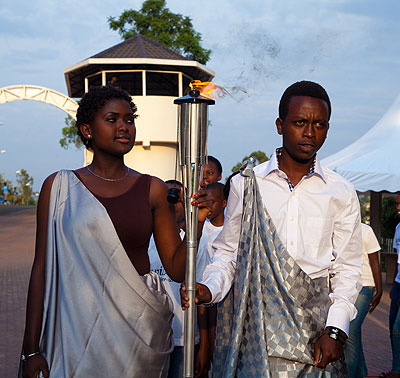Editor,Reference is made to the story, “Genocide torch for nationwide lap of honour”, (The New Times, January 6).


Editor,Reference is made to the story, "Genocide torch for nationwide lap of honour”, (The New Times, January 6).Rwanda’s history has to be seen, told and preserved because today there is a growing interest in the country as many people try to understand the horror that took place here 20 years ago (during the 1994 Genocide against the Tutsi), how and why violence of such magnitude could have happened in our time.The spectre of genocide has never ceased to haunt Rwandan consciousness as the 100 days of remembrance leaves us with complex and pressing questions to ponder. Once something is known, it can never be unknown, it can only be forgotten.We need to remember and face the enemy because the truth lies in remembrance.Commemoration creates and reproduces the history of a country and mark occasions that constitute nationalistic consciousness to foster awareness among the young generation to live a re-constructed history as better citizens.The Genocide commemoration torch seeks to perpetuate the memory of Genocide so that the future generations learn from the past and be inspired to fight hatred and prevent genocide, and promote human dignity and moral responsibility.Rwandans must remember and recommit to "Never Again”. This is the only way our memories can bear fruits of love, peace and harmony and eventually translate our thoughts into actions.We need to create an illustrated narrative that will convey the events of Genocide against the Tutsi at both personal and national levels, for it is better to remember than to forget because if we do not remember then we will never learn.History is the only means to make sense of our past with memory being the virtue that should bind us all together, thus creating a sense of belonging.When we remember we reflect, we learn, get are filled with hope, get inspired and get committed to eradicating the scourge of genocide through education and any other preventive measure.Preventing genocide is an achievable goal; we need to count on the people by mobilising their consciousness to willingly deter and respond to genocide ideology.As we emerge from post-Genocide history, we need to assert our own identity and ensure the healing of survivors – who bear wounds of Genocide during which a million of innocent souls were taken away from us.Rwanda’s history has to be taught, studied by researchers and exhibited for public consumption and improved understanding to create better citizens.David Nkusi, Rwanda


